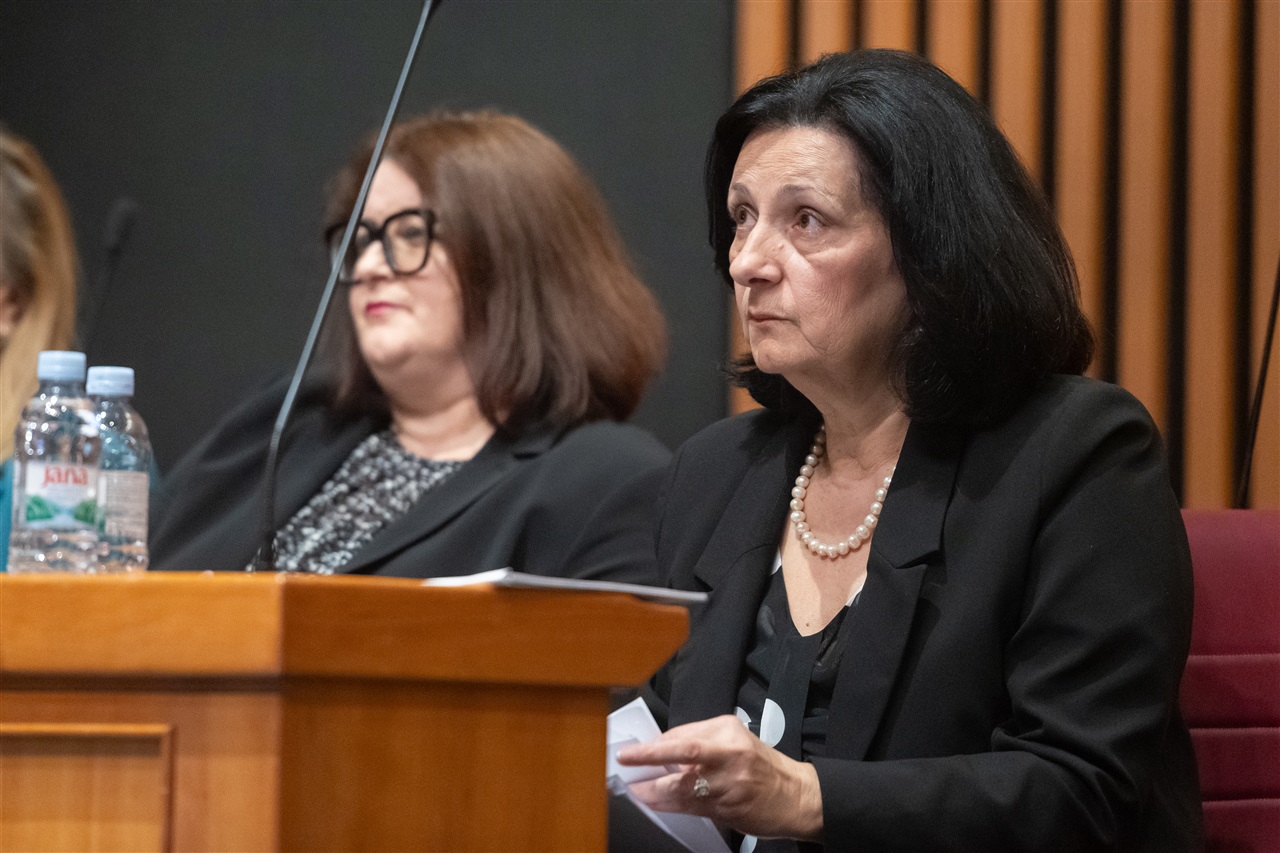
Zagreb - Information Commissioner Anita Markić presented a report to Parliament on Wednesday regarding the implementation of the Right to Access Information Act in 2023.
She highlighted continuous progress in the application of the law and expressed expectations for the continuation of positive trends.
Citing statistical data, Markić informed MPs that out of 5,823 public authorities required to submit reports, more than 90% complied in 2023, marking a slight increase compared to the year before.
She also noted other positive developments in 2023, including a nearly halved number of orders from the Information Commissioner to resolve information access requests, a decline in administrative disputes, the highest number of public consultations recorded in a single year, and an improvement in proactive information disclosure.
Public authorities received 23,700 requests for access to information during the reporting year, with 85% resolved within the legal deadline -slightly lower than the 93% recorded in the previous year.
However, Markić pointed out two extremes.
"The majority of authorities received up to five requests per year, while, on the other hand, just two authorities - Seget Municipality and Hrvatske Vode - received nearly 4,000 requests," she said, explaining that a small number of individuals submitted a disproportionately large number of requests.
In 2023, the Information Commissioner received 1,179 complaints, a 24% decrease compared to the previous year. The majority of these complaints concerned requests submitted to local government units and judicial bodies due to administrative silence, Markić added.
Mirela Ahmetović (SDP) criticised the fact that a quarter of all laws in Parliament are passed under fast-track procedure, which, she argued, excludes the public from the legislative process. She also expressed frustration over the government's failure to respond to MPs' questions.
Markić responded that the fast-track procedure does not necessarily mean that public consultation has not taken place and clarified that the Information Commissioner is not responsible for deciding which laws are passed under such a procedure.
Parliament Speaker Gordan Jandroković joined in the debate, asserting that Parliament has legislative authority and determines the procedure for adopting laws.
"It is not true that we pass an unusually high number of laws under fast-track procedure. In this parliamentary term, fewer laws have been passed this way compared to previous terms," Jandroković said.
MPs Marijana Puljak (Centre/Independent Platform North) and Marija Selak Raspudić (Independent MPs) disagreed, arguing that too many laws are rushed through Parliament.
Puljak also claimed that institutions often ignore the Commissioner's rulings, citing the example of the City of Split requesting information from the State Inspectorate about pollution at the city's Northern Port but failing to receive a response.
Selak Raspudić described the Commissioner's report as well-prepared and informative but stressed the need to address the classification of public data under secrecy regulations.
"The Commissioner can encourage state bodies to make changes in this area," she said, concluding that Croatia still lacks a strong democratic practice regarding access to information.
Ante Kujundžić (Bridge/Independent MP Josip Jurčević) argued that Croatia remains a country where accessing information is difficult and, when obtained, information is often unreliable.
"It is tragic that 4% of the institutions that should appoint an information officer have not done it, and even more tragic is that 10% of public bodies do not have a website," he said.
Urša Raukar Gamulin (We Can!) questioned why Parliament was only now discussing the 2023 report and urged the Speaker to bring reports up for discussion more promptly. She also criticised the high number of public consultations with shortened deadlines and the large number of unanswered public comments.
"There is no significant progress in law implementation apart from minor statistical improvements related to formal compliance," Raukar Gamulin said.
Dalija Orešković (HSS/GLAS/DOSIP) argued that a report that is based solely on statistics and does not address the fundamental issue of which public information the public must have access to, fails in its purpose.
Loris Peršurić (IDS/PGS/Kvarner Union/ISU-PIP) spoke from the perspective of a mayor, highlighting that many cities have already introduced maximum transparency and regularly publish public information. However, he stressed the need for greater efforts in educating both information officers and citizens.